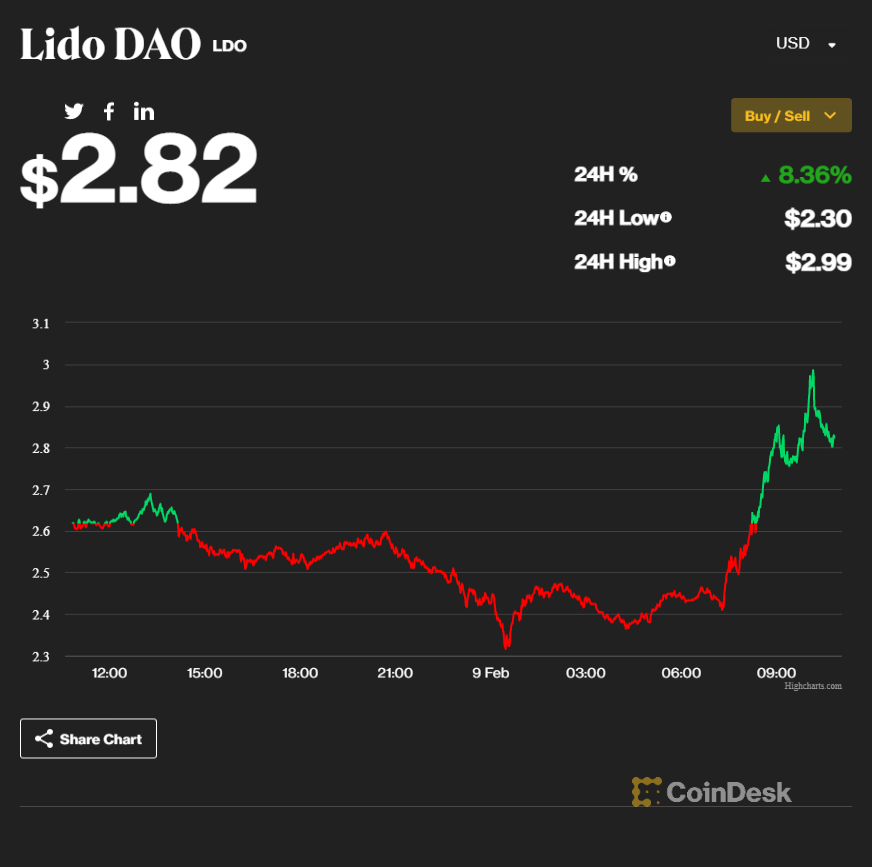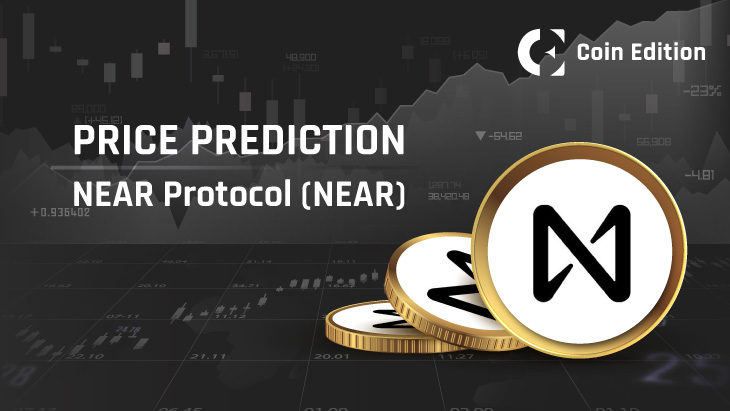- Coinbase CEO boosts rumor that US SEC might ban staking for retail customers.
- Liquid staking platform Lido’s governance token LDO surged 11% after the news.
- Currently, the LDO token is up by 8.4%
The liquid staking platform Lido’s governance token has spiked after Coinbase CEO Brian Armstrong cultivated a rumor that the US Securities and Exchange Commission (SEC) might ban staking for retail users.
Subsequently, the decentralized autonomous organization’s (DAO) governance token, LDO, increased about 11% in response to the comments and is currently up by almost 8.4% in the last 24 hours, according to Coindesk’s dashboard.

Ether can be staked via the Lido protocol, which is controlled by the LDO token. After the “Shanghai” network upgrade, which will take place next month, users will receive a token called “stETH” that reflects their staked position in ether and can be redeemed 1:1 for ether.
It’s improbable that a decentralized protocol like Bitcoin will adhere to securities laws to the same extent as a centralized company like Coinbase with a US domicile.
According to data from DeFiLlama, the total money locked in Lido has increased by 33% over the past month. Lido’s TVL as of right now is $8.56 billion.
On Lido, users have secured $7.8 billion, acquiring smaller contributions from blockchains such as Solana, with the majority of that value coming from the Ethereum blockchain.
In 2023, interest in liquid staking systems has increased as the value of the governance tokens for these protocols has risen. For instance, according to CoinGecko, the price of LDO has increased by 108% to $2.01 since December 31, while its average 24-hour volume has increased by 802%.
Additionally, citing on-chain data, Lido presently holds a 25% market share of the staking pool industry. Meanwhile, Kraken has 7%, while Coinbase has 11.5%. Hence, if the SEC takes the action Armstrong claims it would, Lido would benefit because it would be able to take market share away from Coinbase and other US-based providers.
Disclaimer: The information presented in this article is for informational and educational purposes only. The article does not constitute financial advice or advice of any kind. Coin Edition is not responsible for any losses incurred as a result of the utilization of content, products, or services mentioned. Readers are advised to exercise caution before taking any action related to the company.







